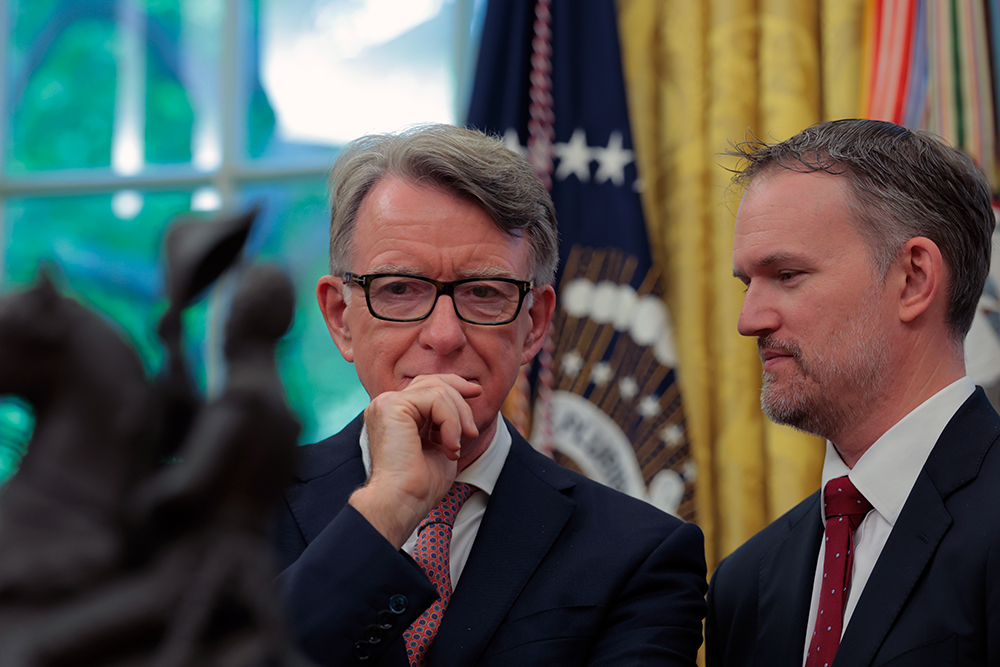
Daniel Kruger is a good and thoughtful man, whom I used to employ as a leader writer before he left for the higher calling of improving prisons. His choices in life have always been influenced by his sense of Christian purpose. That is what will have driven him to defect from the Tories to Reform. The trouble is that this sort of pilgrimage can lead to political misjudgments. There was a time, for instance, when Danny supported the leadership bid of Suella Braverman – a woman of blazing sincerity but not a good political navigator. Commentators are saying that Danny’s defection will make career-minded Tory MPs think they have a better future with Reform than with the Conservatives. That may be their calculation, but they should not base it on Danny’s example. He is someone who is perfectly happy, even proud, to be a voice crying in the wilderness. I don’t think that is where most aspiring young politicos wish to end up.
As many people know where they were when Diana died, I know where I was when Peter Mandelson resigned. These occasions have punctuated my career. When he first resigned, over his massive undeclared loan from a fellow minister to buy a house in Notting Hill (a house, as it happens, virtually next door to the one in which I spent the first four years of my life), I was attending the wedding lunch of Frank Johnson, the then editor of this paper, and the beautiful Virginia Fraser. It was two days before Christmas 1998. As a sort of best man, I had just read out part of T.S. Eliot’s unsuitable poem in French about how ‘Le Directeur/ Conservateur/ Du Spectateur/ Empeste la brise’ when Bruce Anderson lumbered in, whispering loudly that Peter had gone. ‘As he did so,’ I recorded in a note I kept, ‘each person’s face lit up with joy.’ We journalists, chasing the story, made our excuses and left, and Frank, being a journalist to the core, didn’t mind a bit.
The second occasion was when Mandelson had to resign over allegations about procuring a passport for a member of the Hinduja family. This time, I was at the funeral of Auberon Waugh, the brilliant vituperatist of this paper, near Combe Florey. As we emerged from the church, the rain came pelting down, accentuating our sadness at Bron’s premature death. Then the taxi driver said that Mandelson had resigned. Again, my note records: ‘Everyone became v happy.’ I hope these memories do not give the impression that I actually wanted Peter out of government or, last week, out of the Washington embassy. Despite his Achilles’ heel of liking weird men with very large piles of money, he is in other ways a most able minister and an engaging companion whose assessments are always worth listening to. He has filled his many posts successfully. It is just that he sometimes does things which mean he must resign; then he bounces back. The ups and downs are good to watch. The sadness about the latest one is that it is hard to see how he can return. But that was true of the previous ones too.
There are obviously strong moral arguments against Israel’s current policy towards Gaza, and strong moral counter arguments (the suffering of the innocent on one side vs the need to break the terrorists’ hold over the innocent, including the hostages). Unfortunately, media coverage of the subject is moralised – mostly against Israel – much more than it is analysed. Objectively, is Israel now near victory? It is constantly said by people like Jeremy Bowen of the BBC that you can never defeat a powerful popular ideology like Hamas by force of arms. That might be true in a broad, long-term sense, but force of arms can subdue enemies and even destroy their power for many years. Given Israel’s astonishing achievement in smashing Hezbollah’s structure, terrifying Iran, decapitating the Hamas leadership and now bombing them even in Qatar, there is surely a reasonable case for gaining complete control of Gaza City to finish the job. Presumably, Bowen and co keep saying that Israel cannot win because they hate Israel rather than because they are making a real military assessment. On the other hand, the chief of the Israeli general staff and some other Israeli top brass disagree with Benjamin Netanyahu’s policy, thinking it is more trouble than it is worth. It is hard for outsiders to judge. Time for a full, non-moral, military survey of the war from 7 October 2023 to today.
Over the years, this column has quite often raised the question of crowd sizes at demonstrations. I have complained that the police gave up estimating the size because it embroiled them in rows with march organisers. This left the field open for the media to report, unchallenged, the organisers’ claims, which are almost always preposterously high. This weekend, Tommy Robinson and friends said three million people had marched for ‘Unite the Kingdom’. There was, at last, a police estimate – of 110,000. I hope this sets a precedent. With computer mapping, it must nowadays be quite easy to get a fairly accurate count of crowd numbers. The police should always do this and always publish what they find. The general public would then be reminded that even crowds that look colossal hardly ever reach 100,000; even only 10-15,000 looks big to the untrained eye. The wind would go out of most protestors’ sails.
Drug deaths in England and Wales, it is reported, have been seriously under-counted. This problem is about to increase if the assisted suicide bill passes. All the deaths it entails will be drug deaths, yet none – this is stated in the bill – will be subject to examination by a coroner. They will not be recorded as drug deaths at all, because they are administered with the blessing of the state; yet what else are they?









Comments